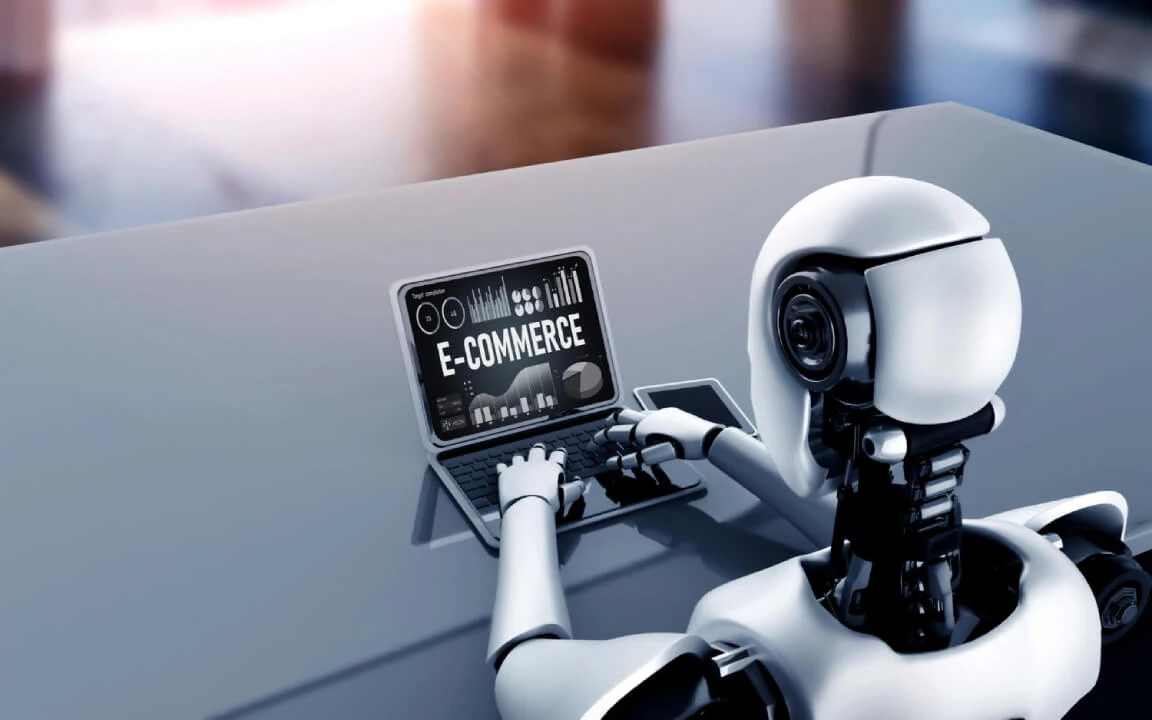
Virtual assistants and robots that independently respond to inquiries and make decisions are no longer part of science fiction.
Artificial intelligence (AI) has become a reality and is already solving numerous challenges on many websites and platforms today. Real-time content personalization, chatbots that instantly respond to user inquiries, and even image and voice command searches are just a small part of what this new technology offers us.
In the e-commerce industry, where competition has never been fiercer, artificial intelligence is becoming a key tool for success. Customers today expect a personalized experience tailored to their needs, quick responses to inquiries, and a seamless purchasing process. AI enables exactly that—it transforms the way we do business in the digital world.
The spectrum of AI applications in the e-commerce industry is extremely broad. We have identified five key areas that we believe can deliver the greatest efficiency and results. Each of these points helps optimize the sales process, increase operational efficiency, and enhance customer relationships:
1. Personalization of the User Experience
One of the greatest strengths of AI lies in its ability to create personalized experiences for every customer. Instead of generic content, AI analyzes visitor behavior, their searches, and purchase history, suggesting products that match their interests. This way, each user receives offers specially tailored for them, increasing the likelihood of purchase and enhancing brand loyalty.
2. Demand Forecasting
Artificial intelligence can analyze vast amounts of data and predict future demand. Based on historical purchase data, seasonal trends, and customer behavior, AI recommends which products to prioritize, how much stock to order, and when to promote them. This functionality helps retailers stay ahead of the competition, reduce inventory costs, and optimize their offerings according to market needs.
3. Market Analysis and Segmentation
AI enables advanced market analysis and customer segmentation based on numerous factors such as demographics, behavior, and preferences. This segmentation allows retailers to better understand their clients and tailor their marketing strategies to specific target groups. This ensures that the messages and offers you send are more relevant and effective, leading to better campaign results.
4. Customer Support Automation
Chatbots and virtual assistants powered by artificial intelligence can quickly and efficiently respond to user inquiries 24/7. This technology allows for faster problem resolution, reduces the burden on customer support, and increases customer satisfaction. Additionally, AI can learn from each conversation, becoming better at providing accurate and useful responses.
5. Creating Personalized Marketing Campaigns
AI enables retailers to create personalized marketing campaigns based on detailed analysis of user data. Instead of mass sending the same offers, AI helps create targeted campaigns tailored to the individual interests and needs of each user. This approach significantly increases conversions, as users receive content that is relevant and engaging to them.
Conclusion
Artificial intelligence is no longer an option but a necessity for modern e-commerce platforms that want to remain competitive in a rapidly changing digital environment. From personalizing the user experience to accurately forecasting demand, AI offers tools that not only facilitate business operations but also create new value for customers. By implementing AI solutions, your online store not only becomes smarter and more efficient but also provides the experience that customers expect and appreciate.
The combination of AI and e-commerce opens the door to limitless possibilities—for growth, innovation, and long-term success. For those willing to invest in this technology, the future promises not only a larger market share but also more loyal customers and more stable sales growth.
